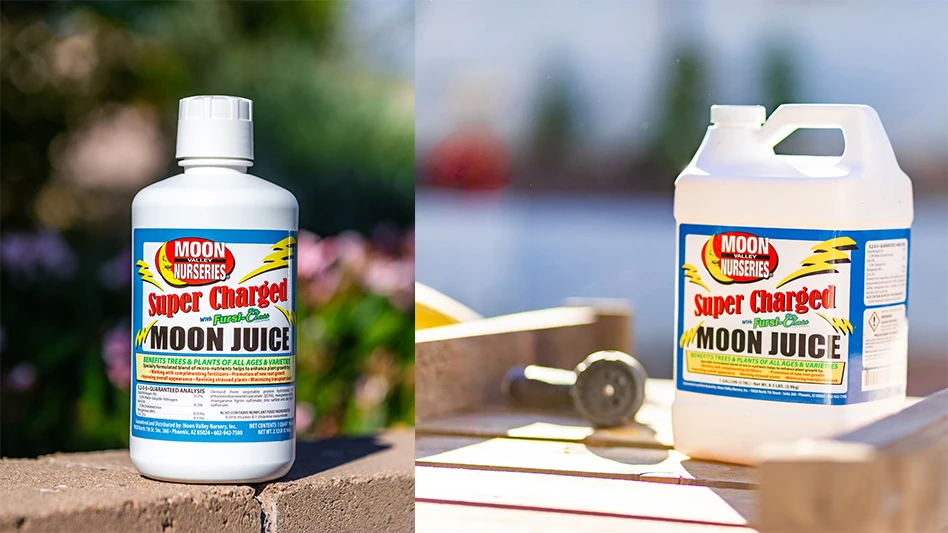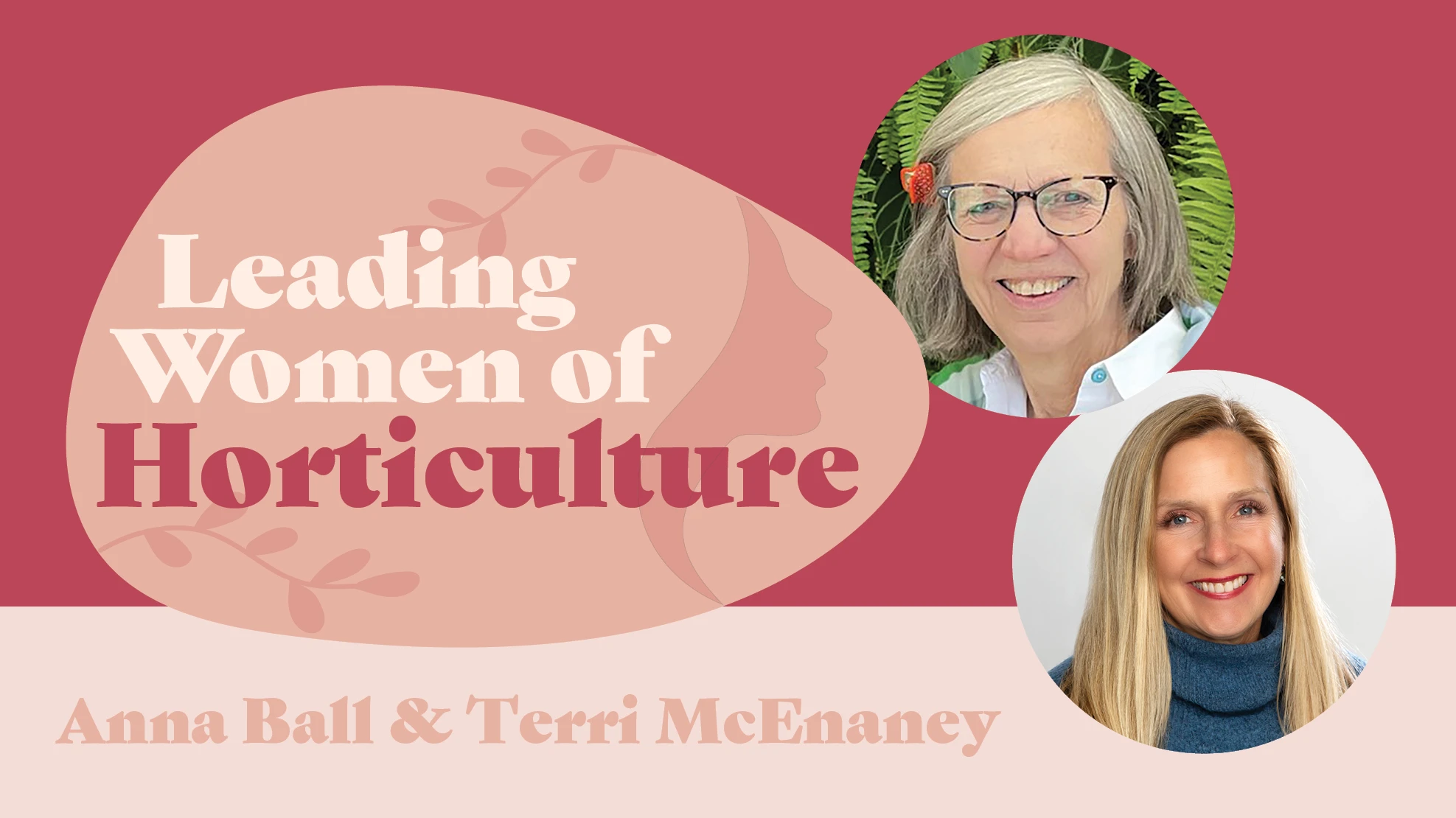In August, Ball Horticultural announced the purchase of The Conard-Pyle Company, the century-old plant development company known for its Knock Out roses, among others. The sale closed at the end of September. We spoke with Steven Hutton, president and CEO of Conard-Pyle and a third-generation family member, and Cees Boonman, president of Ball Seed, the distribution company of Ball Horticultural Company, to get details about the decision and what it means for employees of the companies, garden centers and growers.
Send your Profiles suggestions to msimakis @gie.net .

Editor’s Note: The discussions took place separately. Both interviews have been edited for length and clarity.
Q: How did the conversations with Ball Horticultural begin?
Steven Hutton: We did something, which is a little bit unique in the industry. I hired an investment banker at the outset to run what they call a competitive bid process. The reason I did this was I wanted it to be quick. I didn’t want this to be something that grinded on for nine months or 12 months or a year and a half. I wanted to get to the end as quickly as possible to minimize the agony of the process. The investment bankers ran pretty much the whole process. They created … a 70-page book on The Conard-Pyle Company that would allow a prospective buyer to read financial information, strategic information and prior performance to [determine interest]. We had a list of close to 20 different prospective buyers that I selected as firms from around the world that I thought had the potential to be interested and be potentially a good steward for The Conard-Pyle Company. That process took about 60 to 75 days. The list was pretty substantial at the beginning, but it got smaller and smaller as the process got further toward its conclusion. There’s only one Ball in this industry and worldwide, and I’ve known them from a distance for essentially my whole career. They actually used to be in the rose business when I first started in the late ’70s, so we did overlap in the beginning, and now we overlap at the end.
Q: What made you decide to choose Ball at the end?
SH: There was a small handful of companies at the end, all of which I respect deeply and all of which I was gratified and flattered that they were still interested up until the final days of the process. We were lucky to have a choice of some of those companies that did put in bids. There was a very good fit with Ball. There is almost no overlap, and we don’t do annuals. They’ve got a start-up company in the shrubs/woody line and the shrubs category, but we’re pretty far along with our program. We’ve been doing roses for a while, they saw our approach to marketing and branding, and saw the success there. They were clear in their proposal that they intended to keep our employees, our two locations, our brands, and that they will continue to work with preferred party breeders that we’ve worked with a number of years, in one case for over eight decades. So all of that was important. We made it clear at the outset that price wasn’t the main criterion on who was going to be the next owner of Conard-Pyle. It was just how well does Conard-Pyle fit into their organization, how’s the cultural fit, how’s the strategic fit, how’s the business ethics fit.

Q: How did you come to the decision to purchase Conard-Pyle?
Cees Boonman: Conard-Pyle is the leader in the landscape rose business. Ball has a strategic goal to increase its position in the woody ornamentals business and diversify its product line, so this opportunity was a natural fit for our goal.
Q: Why did you decide to sell Conard-Pyle, and why is now a good time?
SH: It became obvious to, especially the senior management, that I was the last Hutton family member that was going to be in the business and that this place was going to be for sale eventually. That was one factor. Another factor is I’m 64 years old. I love what I’m doing, I could do it for another 10 years, but I wanted to be able to do this while Conard-Pyle was strong and healthy and while I was strong and healthy. There’s no magic to 2015; it’s when things came together.
I love what I’m doing, I could do it for another 10 years, but I wanted to be able to do this while Conard-Pyle was strong and healthy and while I was strong and healthy. There’s no magic to 2015; it’s when things came together.” — Steven hutton
Q: What were the challenges you faced coming to this decision, especially as a third-generation family member of the company?
SH: It’s tough to be the last person to carry this on. It was a process I didn’t feel good about; it was a situation I didn’t feel good about. But I didn’t have a choice. I knew what my job was, and that was to sell the company.
There are unpleasant parts of everybody’s job, and this is going to probably be the most unpleasant part of mine. Once we got going, once I saw the firms that were still involved at the end of the process, I said, “You know, this could go any number of ways, and it would be good.” That’s how that negative emotion turned to a positive one.
Q: I understand that the brand names of Conard-Pyle plants (Knock Out, Star, Drift, etc.) will remain the same. I also understand that the facilities and staff will remain the same. Is this typical of acquisitions?
CB: This is not always typical of acquisitions, but in this case our two companies are very complementary, so we can continue to concentrate on the products, customers and employees of Conard-Pyle.
Q: What are the benefits for Conard-Pyle?
SH: Ball is a phenomenally successful, phenomenally progressive, deeply talented company. We’ll be playing on a bigger stage. We don’t have operations on six different continents. Ball does. It’s a bigger, deeper company, and I haven’t met an individual associated with Ball so far that I’m not proud to be a colleague of.
Q: How will the addition of Conard-Pyle benefit Ball Horticultural?
CB: Ball intends to integrate our Ball Ornamentals Shrub division into Conard-Pyle and open up the Darwin Perennials line of products to Conard-Pyle. The timing of the integration of Ball Ornamentals is still to be determined, with the intention of having the least disruption to our customers.
Q: What do growers and retailers need to know about this decision?
CB: Ball and Conard-Pyle will bring the best of our companies to our customers, retailers and consumers. Conard-Pyle has been very successful in promoting their products, and they will continue to manage their marketing activities. Conard-Pyle will be run as a standalone business, owned by Ball Horticultural Company, with access to Ball’s support and resources when and where needed. Steve Hutton will continue to be the CEO.

Q: Will this change how growers do business with Conard-Pyle?
SH: Ball has a very efficient and robust app where you can place orders online. I think, if anything, we will become more automated. We will have more IT resources, not day one — it will take a while for us to get there. That is something that our sales staff is very excited about. I’m looking forward to that from a customer standpoint. We will run as a standalone operation, so in regards to customer service, [customers] will end up where they always ended up, and talking to the same person they talked to this past season.
Q: Will there be any changes regarding buying liners or becoming licensed growers?
SH: They’ll see almost no difference at all.
Q: What should retailers know about this decision?
SH: I think we’re going to really help our customers sell our lines. That’s what we’re here for. Internally, I remind our staff here at Conard-Pyle/Star Roses & Plants, we’re a product shop, and we follow that with good marketing. We don’t lead with good marketing and put products underneath. I really want that focus. Ball has the same kind of focus. We’re a product shop, and we’ll continue to be a product shop.
Q: What will your role and involvement be after the sale is finalized?
SH: Like I said at the outset, I love what I’m doing and I could do it for another 10 years, but I’m not going to do it for another 10 years. Ball asked and I agreed to stay on for a period of up to two years. We haven’t really been too specific about that. But I’ll know when it’s time to go, and I think if I don’t know when it’s time to go, they’ll probably remind me. And that’s OK. At this point, come Oct. 1, there will be a new owner of The Conard-Pyle Company, and with a new owner comes new things, and they need to have the room to implement those new things without wondering what Steven Hutton might think.
I want to be here, and I want to make sure it’s successful, and part of making sure it’s successful is to know when to leave, because it’s theirs. Another thing that helped nudge me in this direction is there’s always a sense of unfinished business. I had to recognize that fact, and I just need to pick a time rather than when this [or that] project is done, because that’s when the next one comes.

Explore the November 2015 Issue
Check out more from this issue and find your next story to read.
Latest from Garden Center
- Society of American Florists accepting entries for 2025 Marketer of the Year Contest
- Sustainabloom launches Wholesale Nickel Program to support floriculture sustainability
- American Horticultural Society welcomes five new board members
- Color Orchids acquires Floricultura Pacific, becoming largest orchid supplier in U.S.
- American Floral Endowment establishes Demaree Family Floriculture Advancement Fund
- The Growth Industry Episode 3: Across the Pond with Neville Stein
- Proven Winners offers Certified Garden Center Training for staff education
- Digging In Association hosts inaugural Platinum Trowel Awards at winter conference








